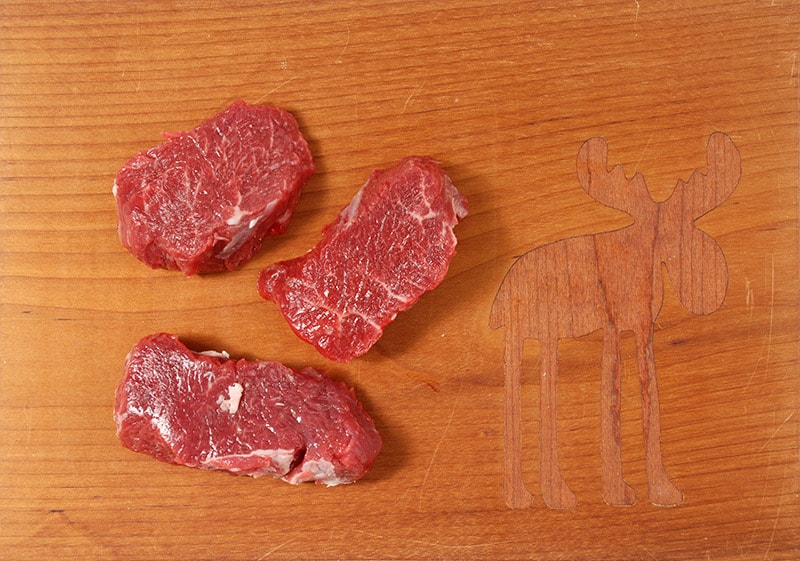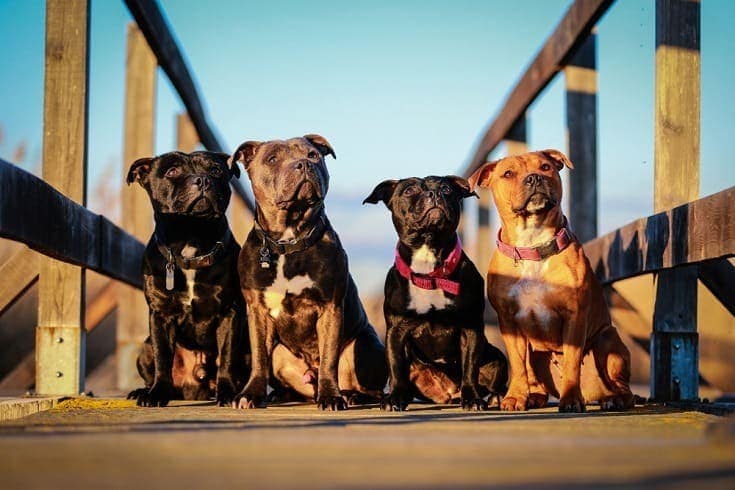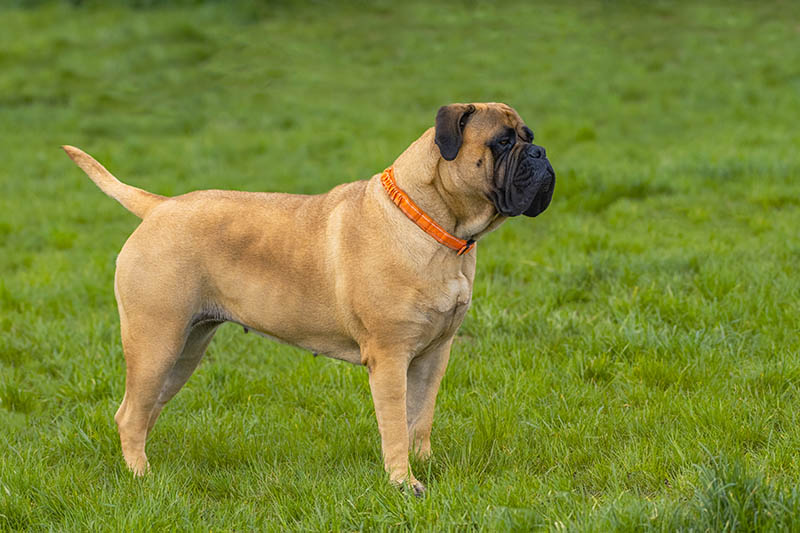Do Basset Hounds Smell More Than Other Dogs? Tips to Prevent Odors

Updated on
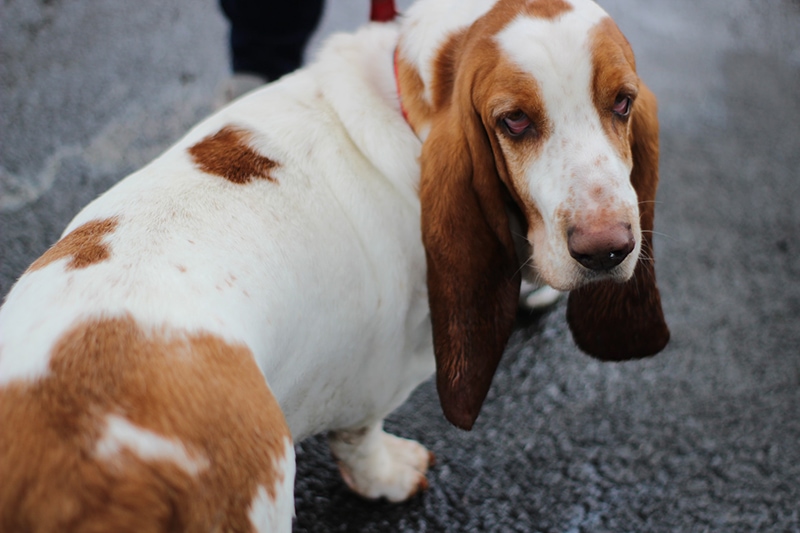
Dogs are wonderful animals, but they do have a few downsides, such as their smell. Their natural odor is subtle most of the time and becomes familiar to dog owners, but occasionally, it can easily clear a room. Basset Hounds are one breed that is smellier than other breeds.
Unfortunately, that Basset Hound odor can be particularly unpleasant. Bad smells also tend to cling to everything, including you when you leave the house.
Knowing why your Basset Hound is smelly and how to manage it can help you keep your dog smelling clean—and prevent you from getting odd looks from your co-workers or guests.
The 4 Reasons Why Basset Hounds Smell Bad
All dogs have a natural odor, including Basset Hounds. However, some breeds are more prone to developing unpleasant smells than others. The Basset Hound has a few traits that make them more susceptible to stinkiness1. Their skin, internal health, and nutrition all play a part in their natural odor.
1. Deep Wrinkles
Part of the Basset Hound’s aesthetic charm comes from the deep wrinkles all over their body. This is also the cause of a few of their smelly problems. All their loose skin is great at trapping scents and enabling the Basset Hound to smell them for longer, but it’s also a way to trap dirt and moisture2.
If you don’t remember to clean all their wrinkles, all that dirt and debris quickly build up. This can lead to unpleasant odors and even skin infections.
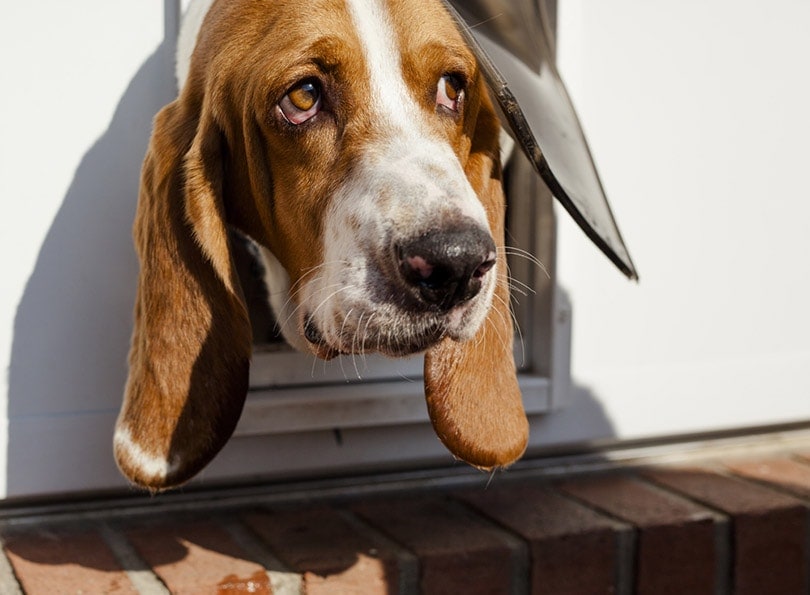
2. Dental Issues
Their strong sense of smell can get your Basset Hound into mischief. They’re also bound to come sniffing around your food and beg for a few scraps. Unfortunately, too much human food can rot your dog’s teeth.
Dental issues don’t just cause unpleasant smells. A rotten tooth can also be painful for your Basset Hound.
3. Ear and Skin Infections
Basset Hounds are predisposed to ear and skin infections3. Their skin might be protected by the natural oils in their coat, but these oils can get trapped in their body wrinkles. Skin yeast, known as Malassezia, is common in Basset Hounds and excessive yeast, moisture, and trapped dirt can irritate sensitive skin.
Your Basset Hound’s long ears trap a large amount of dirt and moisture too. If not regularly checked, those warm damp ear canals are the perfect spaces for bacteria to grow. Ear infections are unpleasant for dogs and should be treated promptly.
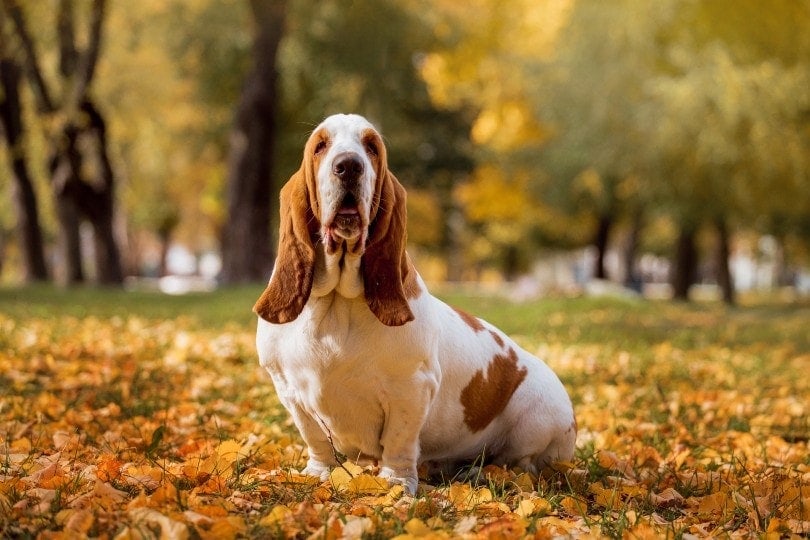
4. Nutritional Imbalance
Your Basset Hound benefits from what they eats, and many of their smelly problems can be caused by not getting the right nutrition.
The wrong food can cause your Basset Hound to have stomach upsets and flatulence. They may also have allergies to certain ingredients in their meals. While that issue won’t help their smelliness, it should still be managed by correcting your dog’s diet.
 Why Do Basset Hounds Smell More Than Other Dogs?
Why Do Basset Hounds Smell More Than Other Dogs?
Basset Hounds were intended to be working dogs rather than family pets. They spend most of their time outdoors on hunts, which is why they produce so much natural oil to keep their skin healthy. Although it can cause a few moisture problems with all their skin folds, the oils protect them from the elements.
The Basset Hound is generally considered to be one of the smelliest dogs around. They’re not the only breed that’s a bit stinky though. Other dogs bred for working outdoors often smell too4. Labradors, Bulldogs, St. Bernards, Bloodhounds, Mastiffs, and many others are all known to be odorous.
Fortunately, these stinky dogs can smell nicer with a bit of care and attention from their owners.
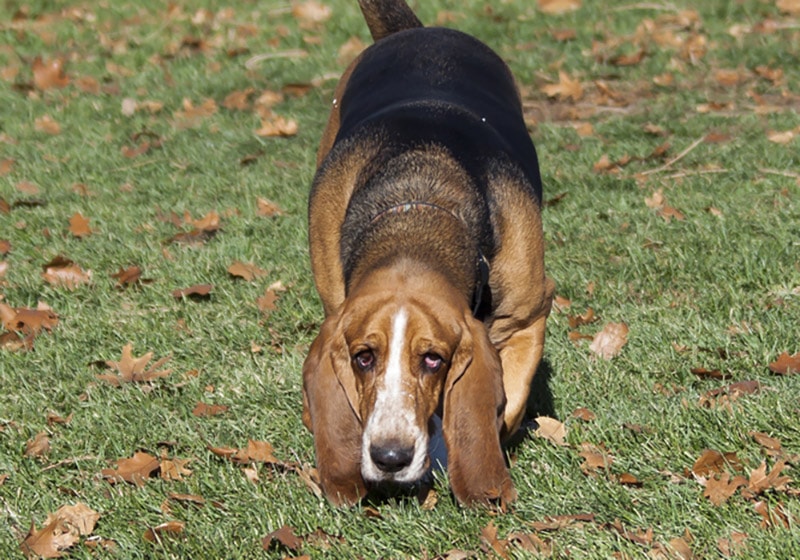
Top 4 Tips to Prevent Your Basset Hound From Smelling Bad
Bad smells might be difficult to remove, but not all is lost. No matter how unpleasant your Basset Hound smells sometimes, there’s usually an underlying cause that can be treated. It can be time-consuming to manage your Basset Hound’s hygiene, but it is also rewarding when you know that your smelly dog is as healthy as possible.
Here are a few tips for you to try.
1. Bath Time
Whenever something smells bad, our first instinct is to wash it. This goes for Basset Hounds too. Using the right shampoo—one that’s designed for dogs, not humans—is one way to tackle unpleasant odors. Too many baths can cause problems, though, so they need to be used sparingly.
You should only bathe your Basset Hound once a month or even less. Spreading out your dog’s bath times like this might not tackle their smelliness as often as you want it to, but it also won’t cause them discomfort by drying out their skin too much.
Even doggy shampoo can strip the natural oils out of your dog’s fur, and it’s these oils that protect their skin and coat, keeping it moist and healthy. If you leave too few of these oils, your Basset Hound won’t have any protection from the weather or all the dirt that they collect during their adventures. Their skin will dry out, crack, and become itchy and uncomfortable.
Combining bath time with a few of the following ideas is your best chance of tackling your dog’s smell.
2. Diet
High-quality dog food might be expensive, but it will likely contain ingredients that are easy to digest. This can help prevent any digestive issues that your Basset Hound might have. Food rich in omega oils can help promote skin health too, which helps fight against infections.
It might take a while to find the brand that works best for your dog, but the right diet and nutrition can work wonders.
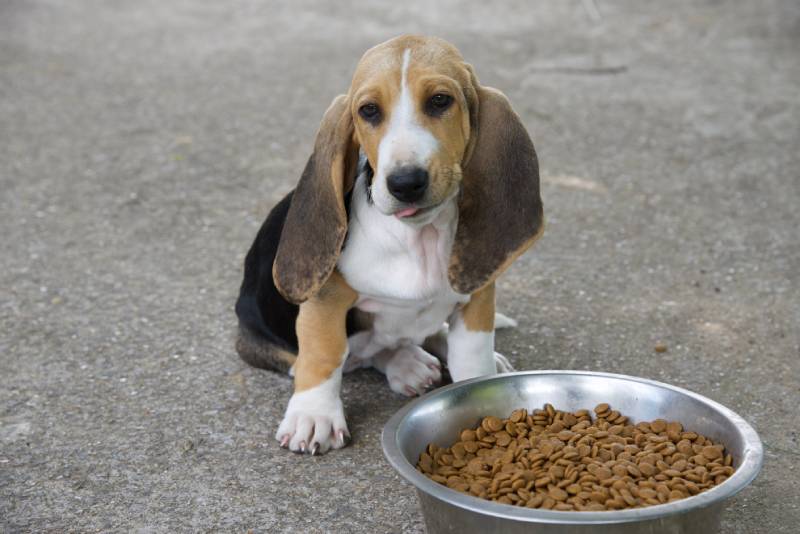
3. Regular Grooming
A quick grooming session a few times a week is gentler on your Basset Hound’s skin than a bath and just as effective in tackling odors. A good brush will remove dirt and debris while ensuring that the natural oils are spread evenly through your dog’s fur.
It’s also an excellent time for you to tend to all your dog’s hygiene needs. Grab unscented baby wipes or veterinary wipes to carefully clean your Basset Hound’s wrinkles. Don’t forget to clean their ears, brush their teeth, and trim their nails too!
4. Vet Visits
If you’ve tried everything else and your Basset Hound still smells, visiting your veterinarian may be your best option. Your hound’s odor may be caused by infections or other health problems.
Your veterinarian will be able to determine what these issues are and instruct you on the best treatments for them. They’ll also be able to help you ensure that your dog’s diet is healthy, nutritional, and helpful in preventing unpleasant odors.
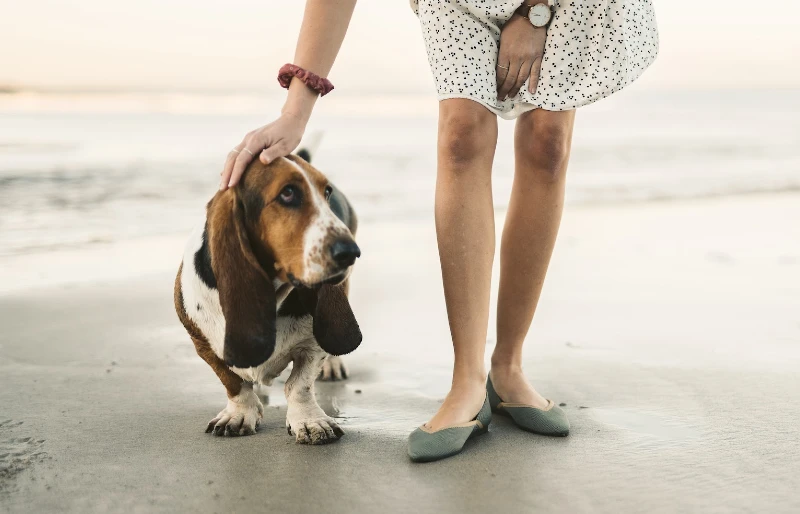
Conclusion
Despite their adorable appearance, Basset Hounds are well known for being smellier than many other breeds. Working dogs need plenty of natural oils to protect their skin and coat from the weather, and the Basset Hound’s deep wrinkles and ears trap dirt and moisture. Skin and ear infections, their diet, and their natural adventurous spirits all make their odor worse.
Keep your Basset Hound smelling as clean as possible by creating a regular grooming schedule. Changing your Basset Hound’s diet can help too. If your hound still smells unpleasant, though, remember to ask your vet for advice.
Featured Image Credit: Lauren McConachie, Unsplash

 Why Do Basset Hounds Smell More Than Other Dogs?
Why Do Basset Hounds Smell More Than Other Dogs?
